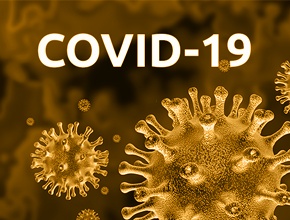Dr Waleed Alhazzani, associate professor in the Division of Critical Care at McMaster University, chair of Surviving Sepsis Campaign (SSC) guidelines, and lead author of the newest SSC guidelines focusing on coronavirus disease 2019 (COVID-19) in the critically ill, shares with Dr Roman Jaeschke his insights into the current evidence behind different treatment options.
References
Alhazzani W, Møller MH, Arabi YM, et al. Surviving Sepsis Campaign: guidelines on the management of critically ill adults with Coronavirus Disease 2019 (COVID-19). Intensive Care Med. 2020 Mar 28. doi: 10.1007/s00134-020-06022-5. [Epub ahead of print] PubMed PMID: 32222812; PubMed Central PMCID: PMC7101866.This interview was recorded on April 9, 2020.
For part 6 of this interview, click here.
Roman Jaeschke, MD, MSc: Welcome to another episode of McMaster Perspective. We have with us Professor Waleed Alhazzani. We talked previously about the use of steroids in critically ill patients with coronavirus disease 2019 (COVID-19). How about other therapies which are of potential use in this population?
Waleed Alhazzani, MBBS, MSc: In the Surviving Sepsis Campaign COVID-19 guideline we have issued several statements related to other treatment options.
We have made a suggestion against the routine use of intravenous immunoglobulins (IVIGs) and interferons, mostly based on the cost and lack of efficacy at the moment, except for the context of clinical trials.
We have also made a suggestion against the routine use of Kaletra, which is a combination of antiviral agents lopinavir and ritonavir, and that’s based on a small clinical trial that had come out in the New England Journal of Medicine just before we published the guideline. Although the results are very imprecise, we thought it still didn’t show much benefit, and for now maybe it should just be used in the context of clinical trials.
For other interventions, including antimalarial agents, other antivirals, and anti-interleukin (IL)-6 antibodies, we have made statements not to make any recommendations. The reason is that well-received or well-read guidelines, like the Surviving Sepsis Campaign guidelines, could have a huge impact, so only interventions that are supported by a certain threshold of evidence would make it to a recommendation. Because we worry about these medications causing harm or issues with resources, we can’t make any recommendations without a convincing evidence of benefit, knowing that these medications are associated with a cost and potential side effects.
The good news is that what we’re saying now may be irrelevant in a few weeks because there are many ongoing trials around the world. Last time we looked there were more than 100 registered randomized clinical trials (RCTs) just on different interventions to treat COVID-19. So hopefully soon we will have a huge body of evidence, if these studies are completed successfully, and then we can make more informed recommendations.
Roman Jaeschke: With either recommendations or suggestions against the use of specific therapies or lack of issued suggestions, how should clinicians behave? We work in the same unit. How should we behave in this situation? Should we simply try to enroll people in clinical trials?
Waleed Alhazzani: I think collaboration is key. Contributing to understanding the effect of treatment on this disease is also important to help future patients. So a short answer is yes, obviously being enrolled in ethical trials that are well designed and well powered should be prioritized, because we want to be involved in trials that will give us some answers about our questions. The short answer is absolutely yes, and we are currently involved in several trials in Hamilton.
Roman Jaeschke: Professor Alhazzani, thank you very much for this series of interviews. I hope we’ll meet soon and we’ll have something more concrete to talk about in terms of treatment. I appreciate your participation very much. Thank you.
Waleed Alhazzani: Thank you.
 English
English
 Español
Español
 українська
українська









